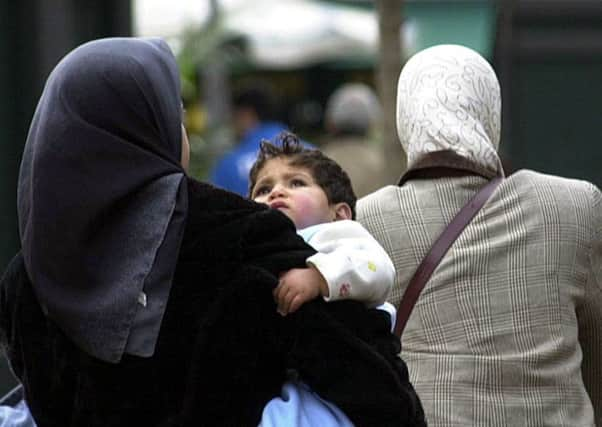Court upholds headscarf ban for French social worker


The case which was decided yesterday dates to 2000, when Christiane Ebrahimian was working in the psychiatric department at a public hospital in Nanterre. She learned that her contract would not be renewed because patients had complained about her refusal to remove her headscarf.
France’s secular government bars public employees from displaying religious beliefs on the job – a ban that has since been extended to schoolchildren and even parents who want to accompany a class outing.
Advertisement
Hide AdAdvertisement
Hide AdThe headscarf ban, which formally became a law banning “conspicuous” religious symbols in 2004, opened a rift with France’s Muslim community, the largest in Europe.
The European Court of Human Rights (ECHR) has now ruled the French hospital was within its rights when it sacked Ms Ebrahimian upholding France’s ban on religious symbols in public institutions.
It is seen as an important victory for secularists at a time of heightened tensions after the deadly terrorist attacks in Paris.
Ending a lengthy legal battle, the ECHR ruled that Ebrahimian’s right to freedom of religion was not breached and French authorities had rightfully given precedence to the state’s religious impartiality. Judges upheld local courts’ findings that the woman’s will to manifest her religion was irreconcilable with her public duties.
“Wearing the veil had been considered by the authorities as an ostentatious manifestation of religion that was incompatible with the requirement of neutrality incumbent on public officials,” the ECHR said in a statement.”
According to the national courts, it had been necessary to uphold the secular character of the state and thus protect the hospital patients from any risk of influence or partiality in the name of their right to their own freedom of conscience. The necessity of protecting the rights and liberties of others had formed the basis of the decision in question.”
The French ban on religious symbols from public institutions was made law in 2004 and reinforced six years later by a total ban on full face covering in public. The latter, dubbed as the “burqa ban”, was also upheld by the ECHR last year, when judges in Strasburg ruled Paris was right in saying that covering one’s face in public could be considered as antisocial behaviour.